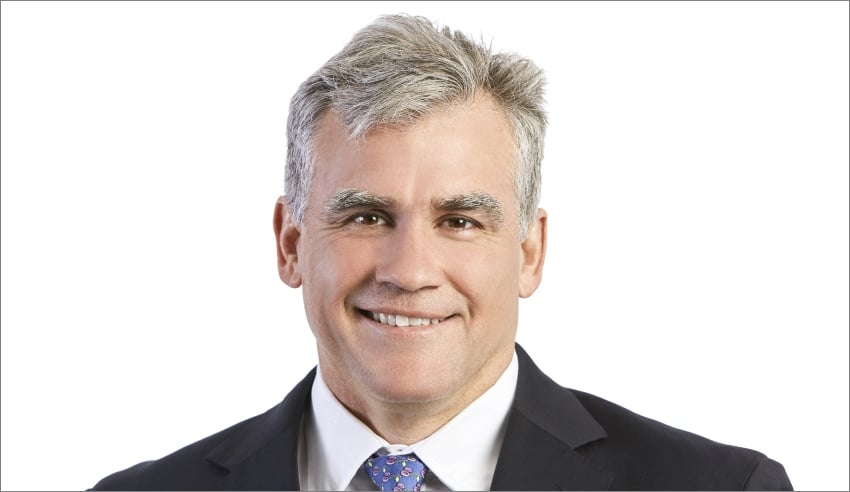HFW’s managing partner Gavin Vallely recently discussed how the law firm, steeped in a rich maritime history, stays relevant and continues to offer value.

Mr Vallely explained what’s next for HFW and the firm’s goals for their Australian office on The Lawyers Weekly Show.
HFW began in England in the 1800s. With its story starting in insurance and shipping law, the firm expanded to include commodities and other services. Law for the mining, logistics, energy, and aviation sectors are also now serviced by HFW, alongside other areas that affect HFW’s customers, such as cyber security.
Mr Vallely commented: “If you look at the sectors of the firm, it really is built around supply chain of goods and people, and that’s also reflected in the spirit of offices because we have a presence in most of the major trade centres in the world.”
He added: “It’s really a firm that’s been built around servicing that international trade – both in terms of people and goods and commodities.”
Why customers work with HFW
Having such a strong lens on specific sectors is an advantage for HFW. Mr Vallely summed it up by stating:
“The sector focus is a path that we’re committed to because the feedback we get from clients is that they’re looking for sector expertise, and whilst a lot of firms go to market on that basis from being able to understand clients’ businesses, the reality is our business has started from the ground up with that focus.”
He added: “So, we still see it as a significant distinguishing feature of our business from other firms in that we are truly a sector-focused, sector-expertise firm.”
How HFW attracts talent
Clients are not the only people to benefit from HFW’s sector experience; employees also see it as a drawcard.
My Vallely explained how HFW’s specialist areas help to engage with talent: “A lot of people join the firm because they want to specialise in a particular area and because of the strength of the firm’s profile and brand in certain areas, for example, the area that I work in: shipping and transport.”
He explained how this helps HFW stand out from other firms: “I think that it [specialising] will assist us in terms of our retention and also attracting people because we have that particular focus as distinct from being what might be described as a generalist.”
Why remote working was easy for HFW
HFW has offices all over the world, including in Australia, Asia, Europe, the Middle East, and the States. Because of this, the firm is well versed in using digital tools to collaborate.
Mr Vallely explained that the firm was able to quickly pivot to working from home when COVID-19 hit. He commented:
“Well, one of the ways I think the firm has been a little ahead of the curve with the impact of COVID was because of the international nature of the firm and the degree of communication across borders, including the use of different forms of media, such as Teams and Zoom, etcetera. We’ve been doing that a long time. So, it actually wasn’t that much of a major transition for us to shift into working from home.”
He added: “I recall that our office in Melbourne went to remote working in March 2020 from memory, and that was a completely seamless operation because we had all the systems set up to do that.”
Face-to-face is still important
While working from home might not have been too onerous for HFW, Mr Vallely said that there was still a place for face-to-face working. Within the context of how HFW is attracting future talent and what hybrid working will look like for the firm, he stated:
“Whilst remote working arrangements have worked very effectively for us for two years, it’s not the same as having the in-person engagement, and it impacts our training and a whole range of other issues around collaborative engagement. So, we’re certainly encouraging our people to come back into the office. But that’ll be a program that we roll out in consultation with our people.”
History isn’t standing in the way of progress
Hybrid working is just one of the many modern workplace issues that HFW is committed to. Diversity is another such area. Mr Vallely told The Lawyers Weekly Show about the firm’s Australian partner and board member who is focused on diversity:
“One of the things that’s very much a focus for the firm is diversity, and in fact, one of the Australian partners who is actually on the firm’s board, Carolyn Chudleigh, is the first dedicated diversity representative on the firm’s board that we’ve had. She’s very prominent both in the business globally, but also in Australia, and is providing a lot of thought leadership in relation to that area.”
What’s next for HFW in Australia?
HFW has been operating in Australia since 2006, when Mr Vallely opened the firm’s first Australian office in Melbourne. Today, HFW has offices in Perth and Sydney, too – alongside many other offices around the world.
Mr Vallely foresees a lot of growth for HFW in Australia, including an expectation that they’ll increase partner headcount from 23 to “mid-30s” over the next two years. He stated: “I wouldn’t be surprised to see the firm grow by 50 per cent over the next two years.”
Mr Vallely qualified this by adding: “Ultimately, the focus is around being able to provide a full service to our clients in the sectors in which we focus.”
The transcript of this podcast episode was slightly edited for publishing purposes. To listen to the full conversation with Gavin Vallely, click below: